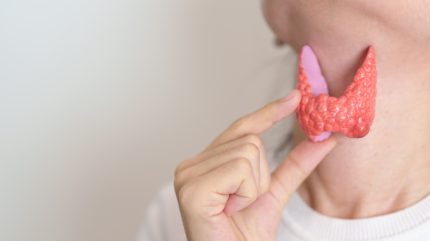
Immunovant has reported positive results from a trial investigating its monoclonal antibody drug batoclimab in Graves’ disease patients, as its other autoimmune candidate IMVT-1402 inches closer to a pivotal trial later this year.
The results for batoclimab include “strong response rates” following an injection with the therapy, according to the US immunology specialist’s CEO Pete Salzmann.

Discover B2B Marketing That Performs
Combine business intelligence and editorial excellence to reach engaged professionals across 36 leading media platforms.
Meanwhile, Immunovant has set its sights on a pivotal trial for IMVT-1402 after an investigational new drug application (IND) was cleared by the US Food and Drug Administration. The biopharma expects to initiate the study, which will also involve Graves’ disease patients, by the end of this year.
Immunovant has been investigating batoclimab – a monoclonal antibody – in a Phase IIa trial (NCT05907668) with Graves’ disease patients who had hypothyroidism despite antithyroid therapy.
Graves’ disease is an autoimmune condition that leads to an overactive thyroid gland, resulting in elevated levels of two main thyroid hormones called triiodothyronine and thyroxine, also known as T3 and T4. Antithyroid drugs (ATDs) are the treatment of choice for most patients with Graves’ hyperthyroidism.
Immunovant claims that its analysis indicates 25%-30% of Graves’ disease patients per year are uncontrolled on ATDs, adding that this represents an “attractive commercial opportunity with limited competition.”

US Tariffs are shifting - will you react or anticipate?
Don’t let policy changes catch you off guard. Stay proactive with real-time data and expert analysis.
By GlobalDataFollowing a course of a first high-dose 680mg batoclimab once-weekly over 12 weeks, patients had a mean immunoglobulin-G (IgG) reduction of 77%, leading to a response rate, defined as T3 and T4 falling below the upper limit of normal (ULN) without increasing the ATD dose, of 76%.
The trial’s primary endpoint is the percentage of participants who achieve normalisation of the two hormone levels or have them below the lower limit of normal (LLN) after 24 weeks. Immunovant did not disclose further details on this measurement.
Batoclimab’s efficacy looks promising however, with its higher-dose version achieving a 56% ATD-Free Response, meaning T3 and T4 falling below the ULN and the patient simultaneously tapering completely off their ATD.
Salzmann said: “We find the correlation between clinical response and IgG lowering impressive and believe this creates not only a potential first-in-class but also a potential best-in-class opportunity for IMVT-1402.
“We are very pleased to have aligned with the FDA on a pivotal trial design that we expect to initiate by the end of the year.”
Salzmann previously disclosed that Immunovant would prioritise IMVT-1402 for myasthenia gravis (MG) over batoclimab. The latter’s use is being evaluated in a Phase III trial for the muscle weakness disorder. Immunovant believes that IMVT-1402 may have better efficacy but will wait until topline results from the Phase III trial for confirmation, which are expected in early 2025.
Batoclimab is also being evaluated by Immunovant in thyroid eye disease and chronic inflammatory demyelinating polyneuropathy (CIDP).





